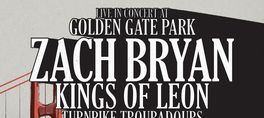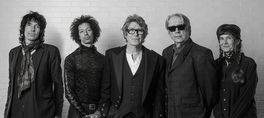Ship strikes of whales have been recognized as a growing concern worldwide. Documented ship strikes from NOAA NMFS data from 1988-2011, occurring just within the GFNMS/CBNMS region, total 20 whales killed by ships (i.e., death caused by vessel collision or carcass exhibited signs of trauma consistent with vessel collision) and an additional 10 injured and possibly killed (i.e., collision observed, but final status unknown). The true number of ship strikes could be at least 10 times higher than the number documented.
Anthropogenic noise in the ocean, including off the California coast, has increased exponentially over the past 60 years, largely due to the increased number, size, and tonnage of vessels in the commercial fleet. The sanctuaries, given their coincidence with the TSS adjacent to San Francisco Bay ports, are especially susceptible to increased amounts of anthropogenic noise. Commercial vessels are responsible for relatively loud, low-frequency underwater noise. This ship noise overlaps significantly with the frequency range used by many cetacean species, especially with low-frequency vocalizers such as blue, fin, humpback, and grey whales, and can cause what is known as masking. Masking occurs when increased levels of background noise reduce an animal's ability to detect relevant sounds and can hinder prey detection and reduce the range of communication.
Protecting endangered species and sanctuary resources is a priority issue for the National Oceanic and Atmospheric Administration (NOAA). To address this issue locally, Gulf of the Farallones (GF) and Cordell Bank (CB) Sanctuary Advisory Councils formed a Joint Working Group (JWG) on Vessel Strikes and Acoustic Impacts, represented by a diversity of stakeholders including the shipping industry, and the conservation and scientific communities. Staff from federal agencies (including NMFS, the Sanctuaries, and the U.S. Coast Guard), as well as members of the scientific community and environmental organizations served as technical experts to the JWG. Over one year, the JWG met and came to consensus on a set of recommendations to the sanctuary http://sanctuaries.noaa.gov/protect/shipstrike/pdfs/strikes_acoustic.pdf).
This panel consists of members of that Joint Working Group. Experts in their field, they will discuss the process and how stakeholders came together to achieve consensus on a set of specific, solution-oriented recommendations.
Leslie Abramson, John Berge: Pacific Merchant Shipping Association, Jackie Dragon: Greenpeace, Jaime Jhancke: PRBO Conservation Science
Tentatively, if available: John Calambokidis (Olympia, WA): Cascadia research, Frances Gulland: Senior Scientist at The Marine Mammal Center and one of three Commissioner positions at the U.S. Marine Mammal Commission, Michael Jasny:NRDC (focus on legal and acoustics issues).
show less
Anthropogenic noise in the ocean, including off the California coast, has increased exponentially over the past 60 years, largely due to the increased number, size, and tonnage of vessels in the commercial fleet. The sanctuaries, given their coincidence with the TSS adjacent to San Francisco Bay ports, are especially susceptible to increased amounts of anthropogenic noise. Commercial vessels are responsible for relatively loud, low-frequency underwater noise. This ship noise overlaps significantly with the frequency range used by many cetacean species, especially with low-frequency vocalizers such as blue, fin, humpback, and grey whales, and can cause what is known as masking. Masking occurs when increased levels of background noise reduce an animal's ability to detect relevant sounds and can hinder prey detection and reduce the range of communication.
Protecting endangered species and sanctuary resources is a priority issue for the National Oceanic and Atmospheric Administration (NOAA). To address this issue locally, Gulf of the Farallones (GF) and Cordell Bank (CB) Sanctuary Advisory Councils formed a Joint Working Group (JWG) on Vessel Strikes and Acoustic Impacts, represented by a diversity of stakeholders including the shipping industry, and the conservation and scientific communities. Staff from federal agencies (including NMFS, the Sanctuaries, and the U.S. Coast Guard), as well as members of the scientific community and environmental organizations served as technical experts to the JWG. Over one year, the JWG met and came to consensus on a set of recommendations to the sanctuary http://sanctuaries.noaa.gov/protect/shipstrike/pdfs/strikes_acoustic.pdf).
This panel consists of members of that Joint Working Group. Experts in their field, they will discuss the process and how stakeholders came together to achieve consensus on a set of specific, solution-oriented recommendations.
Leslie Abramson, John Berge: Pacific Merchant Shipping Association, Jackie Dragon: Greenpeace, Jaime Jhancke: PRBO Conservation Science
Tentatively, if available: John Calambokidis (Olympia, WA): Cascadia research, Frances Gulland: Senior Scientist at The Marine Mammal Center and one of three Commissioner positions at the U.S. Marine Mammal Commission, Michael Jasny:NRDC (focus on legal and acoustics issues).
Ship strikes of whales have been recognized as a growing concern worldwide. Documented ship strikes from NOAA NMFS data from 1988-2011, occurring just within the GFNMS/CBNMS region, total 20 whales killed by ships (i.e., death caused by vessel collision or carcass exhibited signs of trauma consistent with vessel collision) and an additional 10 injured and possibly killed (i.e., collision observed, but final status unknown). The true number of ship strikes could be at least 10 times higher than the number documented.
Anthropogenic noise in the ocean, including off the California coast, has increased exponentially over the past 60 years, largely due to the increased number, size, and tonnage of vessels in the commercial fleet. The sanctuaries, given their coincidence with the TSS adjacent to San Francisco Bay ports, are especially susceptible to increased amounts of anthropogenic noise. Commercial vessels are responsible for relatively loud, low-frequency underwater noise. This ship noise overlaps significantly with the frequency range used by many cetacean species, especially with low-frequency vocalizers such as blue, fin, humpback, and grey whales, and can cause what is known as masking. Masking occurs when increased levels of background noise reduce an animal's ability to detect relevant sounds and can hinder prey detection and reduce the range of communication.
Protecting endangered species and sanctuary resources is a priority issue for the National Oceanic and Atmospheric Administration (NOAA). To address this issue locally, Gulf of the Farallones (GF) and Cordell Bank (CB) Sanctuary Advisory Councils formed a Joint Working Group (JWG) on Vessel Strikes and Acoustic Impacts, represented by a diversity of stakeholders including the shipping industry, and the conservation and scientific communities. Staff from federal agencies (including NMFS, the Sanctuaries, and the U.S. Coast Guard), as well as members of the scientific community and environmental organizations served as technical experts to the JWG. Over one year, the JWG met and came to consensus on a set of recommendations to the sanctuary http://sanctuaries.noaa.gov/protect/shipstrike/pdfs/strikes_acoustic.pdf).
This panel consists of members of that Joint Working Group. Experts in their field, they will discuss the process and how stakeholders came together to achieve consensus on a set of specific, solution-oriented recommendations.
Leslie Abramson, John Berge: Pacific Merchant Shipping Association, Jackie Dragon: Greenpeace, Jaime Jhancke: PRBO Conservation Science
Tentatively, if available: John Calambokidis (Olympia, WA): Cascadia research, Frances Gulland: Senior Scientist at The Marine Mammal Center and one of three Commissioner positions at the U.S. Marine Mammal Commission, Michael Jasny:NRDC (focus on legal and acoustics issues).
read more
Anthropogenic noise in the ocean, including off the California coast, has increased exponentially over the past 60 years, largely due to the increased number, size, and tonnage of vessels in the commercial fleet. The sanctuaries, given their coincidence with the TSS adjacent to San Francisco Bay ports, are especially susceptible to increased amounts of anthropogenic noise. Commercial vessels are responsible for relatively loud, low-frequency underwater noise. This ship noise overlaps significantly with the frequency range used by many cetacean species, especially with low-frequency vocalizers such as blue, fin, humpback, and grey whales, and can cause what is known as masking. Masking occurs when increased levels of background noise reduce an animal's ability to detect relevant sounds and can hinder prey detection and reduce the range of communication.
Protecting endangered species and sanctuary resources is a priority issue for the National Oceanic and Atmospheric Administration (NOAA). To address this issue locally, Gulf of the Farallones (GF) and Cordell Bank (CB) Sanctuary Advisory Councils formed a Joint Working Group (JWG) on Vessel Strikes and Acoustic Impacts, represented by a diversity of stakeholders including the shipping industry, and the conservation and scientific communities. Staff from federal agencies (including NMFS, the Sanctuaries, and the U.S. Coast Guard), as well as members of the scientific community and environmental organizations served as technical experts to the JWG. Over one year, the JWG met and came to consensus on a set of recommendations to the sanctuary http://sanctuaries.noaa.gov/protect/shipstrike/pdfs/strikes_acoustic.pdf).
This panel consists of members of that Joint Working Group. Experts in their field, they will discuss the process and how stakeholders came together to achieve consensus on a set of specific, solution-oriented recommendations.
Leslie Abramson, John Berge: Pacific Merchant Shipping Association, Jackie Dragon: Greenpeace, Jaime Jhancke: PRBO Conservation Science
Tentatively, if available: John Calambokidis (Olympia, WA): Cascadia research, Frances Gulland: Senior Scientist at The Marine Mammal Center and one of three Commissioner positions at the U.S. Marine Mammal Commission, Michael Jasny:NRDC (focus on legal and acoustics issues).
show less
Category:
Date/Times:
Bay Model Visitor Center
2100 Bridgeway, Sausalito, CA
The Best Events
Every Week in Your Inbox
From Our Sponsors
UPCOMING EVENTS
Great suggestion! We'll be in touch.
Event reviewed successfully.








